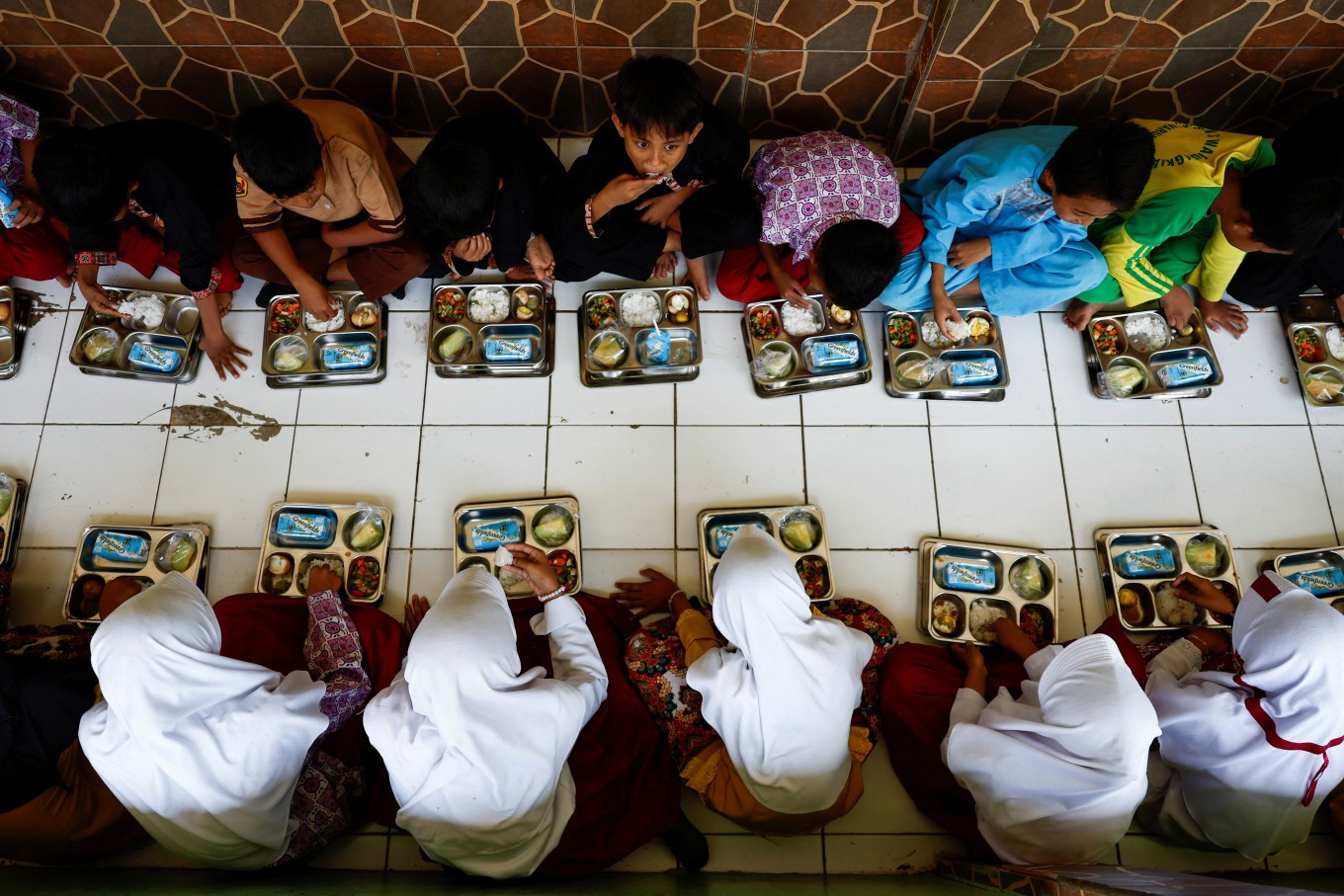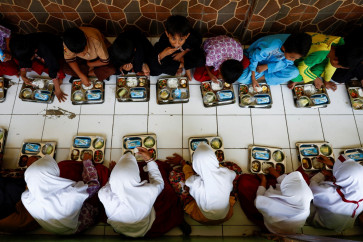Popular Reads
Top Results
Can't find what you're looking for?
View all search resultsPopular Reads
Top Results
Can't find what you're looking for?
View all search resultsFood safety risks in Prabowo’s free meals program
The government must close the gap in food safety infrastructure and oversight throughout the supply chain by implementing stringent regulations and authorities across the national, regional and community levels to mitigate potential health risks and ensure the success of Prabowo’s free meals program.
Change text size
Gift Premium Articles
to Anyone
P
resident Prabowo Subianto’s ambitious program to provide free nutritious meals on a national scale has been met with widespread interest and support. The program, which aims to address malnutrition and ensure access to healthy food, is a commendable initiative. However, it comes with significant risks, particularly regarding food safety, which requires urgent attention to prevent unintended consequences.
The primary concern lies in Indonesia’s regulatory framework governing food safety. Under Presidential Regulation (Perpres) No. 80/2017, the Food and Drug Monitoring Agency (BPOM) is tasked with overseeing processed food products, specifically those packaged and produced by the food industry.
Unfortunately, this regulation excludes ready-to-eat (RTE) meals, such as those envisioned in the free nutritious meal program. This gap in oversight raises pressing questions about who will ensure the safety and quality of the meals provided under this initiative.
Food safety is a complex issue that demands meticulous planning and execution. In the context of Prabowo’s free meals program, several potential risks warrant attention. Without stringent oversight, RTE meals are vulnerable to contamination at various stages, including preparation, storage and distribution. Contaminated food can lead to outbreaks of foodborne illnesses, undermining the program’s objectives and risking public health.
The absence of clear regulatory guidelines for RTE meals could result in inconsistent quality and nutritional value across the program. This variability might negate the program’s goal of delivering uniformly nutritious meals to all beneficiaries.
In the absence of a designated authority, identifying and addressing lapses in food safety becomes challenging. This lack of accountability could erode public trust and diminish support for the initiative over time.
Additionally, managing the supply chain for RTE meals at such a large scale introduces logistical hurdles. Improper handling or storage during transportation could compromise food safety.



















